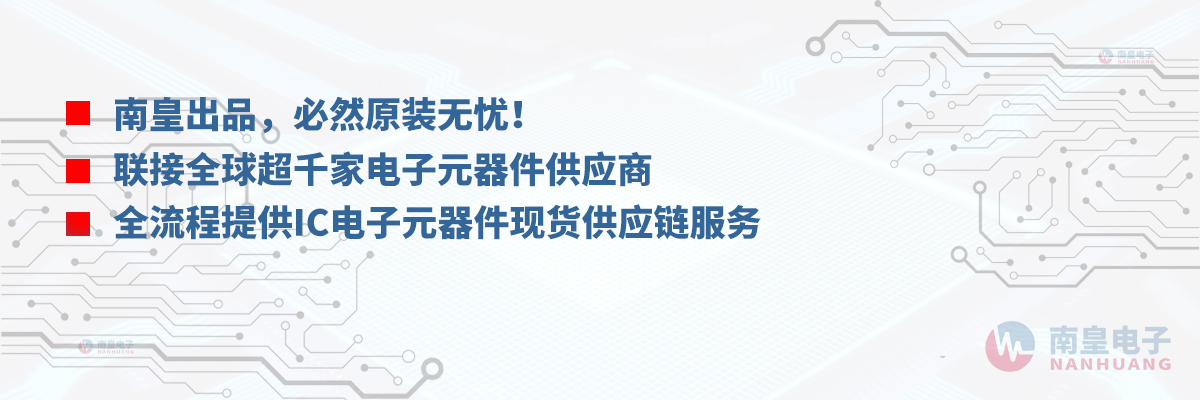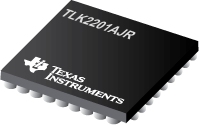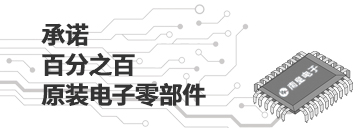

TLK2201AJR是TI公司的一款1G-40G以太网/光纤通道收发器产品,TLK2201AJR是1.0 至 1.6Gbps 千兆以太网收发器,本页介绍了TLK2201AJR的产品说明、应用、特性等,并给出了与TLK2201AJR相关的TI元器件型号供参考。
TLK2201AJR - 1.0 至 1.6Gbps 千兆以太网收发器 - 1G-40G以太网/光纤通道收发器 - 串行器、解串器 - TI公司(Texas Instruments,德州仪器)
The TLK2201AJR is a member of the transceiver family of multigigabit transceivers, optimized for use with small form-factor optical transceivers that require footprints smaller than 14 mm. The TLK2201AJR gigabit ethernet transceiver is fully compliant with IEEE 802.3 requirements for serializer/deserializer functions at 1.25 Gbps. The TLK2201AJR supports a wide range of serial data rates from 1.0 Gbps to 1.6 Gbps.
The primary application of this device is to provide building blocks for point-to-point baseband data transmission over controlled impedance media of 50 . The transmission media can be printed-circuit board traces, copper cables, or fiber-optical media. The ultimate rate and distance of data transfer is dependent upon the attenuation characteristics of the media and the noise coupling to the environment.
The TLK2201AJR performs the data serialization, deserialization, and clock extraction functions for a physical layer interface device. The transceiver operates at 1.25 Gbps (typical), providing up to 1.0 Gbps of data bandwidth over a copper or optical media interface.
The TLK2201AJR supports both the defined 10-bit interface (TBI) and a reduced 5-bit interface with double data rate (DDR) clocking. In the TBI mode the serializer/deserializer (serdes) accepts 10-bit wide 8-bit/10-bit (8b/10b) parallel encoded data bytes. The parallel data bytes are serialized and transmitted differentially at PECL compatible voltage levels. The serdes extracts clock information from the input serial stream and deserializes the data, outputting a parallel 10-bit data byte.
In the DDR mode the parallel interface accepts 5-bit wide 8-bit/10-bit encoded data aligned to both the rising and falling edge of the reference clock. The data is clocked most significant bit first (i.e., bits 0-4 of the 8-bit/10-bit encoded data) on the rising edge of the clock, and the least significant bits (i.e., bits 5-9 of the 8-bit/10-bit encoded data) are clocked on the falling edge of the clock.
The transceiver automatically locks onto incoming data without the need to prelock.
The TLK2201AJR provides a comprehensive series of built-in tests for self-test purposes including loopback and PRBS generation and verification. An IEEE 1149.1 JTAG port is also supported.
The TLK2201AJR is housed in a high-performance, thermally enhanced, 80-pin land grid array (LGA) MicroStarJr package. Use of the MicroStarJr™ package does not require any special considerations. All ac performance specifications in this data sheet are measured with the MicroStarJr™ soldered to the test board.
The TLK2201AJR is characterized for operation from 0°C to 70°C.
The TLK2201AJR uses a 2.5-V supply. The I/O section is 3.3-V compatible. With the 2.5-V supply the chipset is very power efficient dissipating less than 250 mW typical power when operating at 1.25 Gbps.
The TLK2201AJR is designed to be hot plug capable. A power-on reset holds RCB0 and RCB1 low. The parallel side output pins, TXP and TXN go to high-impedance during power up.
- 1.0-to 1.6-Gigabits Per Second (Gbps) Serializer/Deserializer
- Low Power Consumption < 250 mW at 1.25 Gbps
- PECL Compatible Differential I/O on High-Speed Interface
- Single Monolithic PLL Design
- Support for 10-Bit Interface (TBI) or Reduced Interface 5-Bit Double Data Rate (DDR) Clocking
- Receiver Differential Input Thresholds 200 mV Minimum
- IEEE 802.3 (Gigabit Ethernet) Compliant
- Advanced 0.25-µm CMOS Technology
- Interfaces to Backplane, Copper Cables, or Optical Modules
- No External Filter Capacitors Required
- Comprehensive Suite of Built-In Testability
- IEEE 1149.1 JTAG Support
- 2.5-V Supply for Lowest Power Operation
- 3.3-V Tolerant on TTL Inputs
- Hot Plug Protection
- ESD Protection 2-kV HBM
- 5 mm × 5 mm Footprint Remover Space Limitations With Small Form-Factor MicroStar Junior™ BGA Packaging
MicroStar Junior is a trademark of Texas Instruments.







